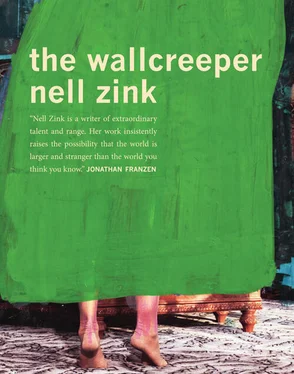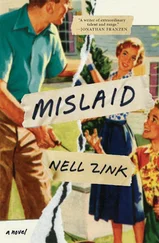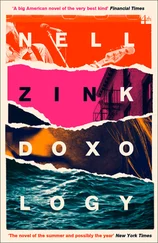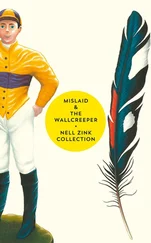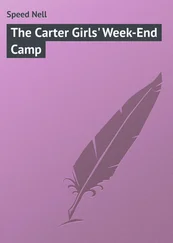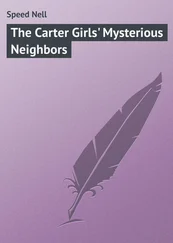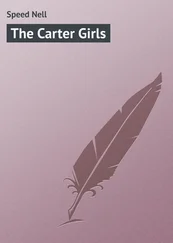His presentation was designed to promote tourism to the European Stork Village of Rühstädt. The Rühstädt storks nest on every available roof. When they return from Africa in March, they eat worms. Then they eat the town’s plentiful frogs. They have kind eyes and patient smiles. Not just any town can become a European Stork Village (ESV). There is a strict evaluation process, and if the interests of, say, industrialized agriculture are put above those of storks, the town will be bounced right out of the program and its storks deployed elsewhere. But Rühstädt valued its storks, which are fun for the whole family. The town was like a safari park, with storks climbing all over everything, catching mice, thrashing the life out of lizards, following cows around. It was like vacationing in the baboon enclosure at the zoo, except they had no thumbs and couldn’t grab anything out of your hands and tear it apart. They were after other quarry. Human beings to storks were just a way of mowing the lawn, and nothing pleases them more than a whiff of decaying socialism. If you plot Germany’s stork nests on a map, you can see where East Germany used to be, because it’s where the storks are now. The ESV Rühstädt, Olaf concluded, offers the ultimate in stork experience. The audience was free to infer its superiority to state government-approved SVs and the various other self-styled/consensus SVs that haunt self-published municipal media. Immediately after the talk, Olaf approached me and asked if I would like to go out somewhere for a drink. He didn’t even take time to ditch the local chairman. He just herded me toward the coat rack. I said yes.
We agreed to try a bar that was a few feet away on the corner. We looked in the window (skinheads, bikers) and kept walking.
It was a humid night with warmth in the wind. It was very dark. Inside of a dozen yards, the darkness and other factors made the distance back to the meeting room and the tram stop seem unbridgeable and the distance to Stephen and Birke intergalactic. We walked for five minutes, passing two or three more bars. I thought maybe Olaf was so restless in my presence that he was walking at random. Instead he touched my arm in front of a run-down townhouse and said, “This is it.” He opened the door with an old four-sided socialist key and shepherded me inside. Still in the hallway, standing by the mailboxes, he said, “I’ve been wanting to do this,” and put his arms around my waist.
It was not what I had been expecting. He was sweet, and serious, and his mustache tickled. We crept to his rented room and had sex in a very single-minded way.
He said he was a lobbyist with the European Environmental Bureau and had friends in Pankow. He was a close follower of political developments and the soul of calm, which I suppose is a chicken-egg problem. He called the policies he was trying to influence “my themes,” as in my cards, the hand I’ve been dealt. The things it has been given to me to care about. While Stephen was busy getting all fired up to run hard all day every day as if what activists do is be active, Olaf sat coolly regarding his hand and deciding which cards to keep face down. Where I was concerned, his strategy had apparently been to abstract me from the presence of anyone we both might know and get me into bed before considering consequences and further options. He said with surprise that he had not slept with Birke, although she was a very persuasive speaker and clearly an asset to Global Rivers Alliance.
We didn’t talk about anything personal. We had more sex. I don’t think I laughed once. Then it got to be about eight o’clock, and we went to sleep.
Stephen was not going to be happy.
Stephen was not happy. When I saw him again the next afternoon, he greeted me with a hard-on and the word “homewrecker.” I didn’t mind. My privates were so raw from overuse that I couldn’t think of any other body part. When I closed my eyes I still felt Olaf’s dick. But I felt guilty about reducing Olaf to body parts the way he had reduced me, so I kept my eyes open to watch Stephen fuck me, which he did as if his marriage depended on it.
Stephen never had a strategy about anything. He just went ahead and did stuff, then tried retrospectively to figure out why.
It made him a pawn of fate, relative to Olaf. All those contradictions occasioned by his passion to make his dreams come true while recursively extracting unrealistic from realistic dreams in order to denounce the former as vanities. Even his fucking was binary, a sorting process by which certain practices could be tried and found wanting or approved and accorded benchmark status.
What went on inside me was something else. I lay there in an aura worthy of Prince Myshkin, possessed by indeterminacy, feeling Olaf vividly and somehow (keeping our conversation impersonal was presumably part of his strategy) unable to recall that he was a married man who lived hundreds of miles away.
Wasserkraft Nein Danke reached critical mass. Dozens of organizations had jettisoned its banner from their site and adopted the slogan themselves. They stopped waffling on hydro-electric and began solidly advocating decentralized solar and bat-safe wind. Donations to Global Rivers Alliance were down.
And so was public support for the Green Party and environmental causes generally. The electorate fumed that it had been deceived all those years into thinking dams were somehow green. It folded its collective arms and pouted. The mainstream media ridiculed Wasserkraft Nein Danke as the single whiniest own goal in league history.
But Birke’s idea had succeeded in moving public debate to the left. No one wrote anymore about whether hydroelectric power was good or bad, only about whether it was entirely necessary to remove all the dams on the Rhine at a cost of billions of euros. Commentators on the far right demanded that the existing dams on the Rhine be spared.
Of course, what effect the public discourse might have on actual construction projects was anybody’s guess. Such projects lumbered to their feet over periods of decades and moved, or melted, as inexorably as glaciers. Saving the world wasn’t exciting or dynamic. It was more like the pharma pipeline, except the malady it hoped to cure had pockets so deep they could have swallowed the environmental movement and every other eccentricity in civil society without a burp. You might stop them building a dam at a given site this decade, but maybe they never wanted to. The pockets — huge, deregulated private utilities — were mutually opaque and nominally in competition, but somehow or other they always seemed to share priorities. Or rather a single priority: freedom. They wanted to be able to plan as if nothing else on Earth existed. Their chief responsibility was to their investors, who wanted them to be the best pockets they could be. Places to store value. Deep and capacious, with space for liquid billions and no holes.
For the moment, industry backed away from the rivers. It started asking for woodlands for wind turbines and fracking as an alternative to lignite coal. Birke had won.
It was nearly impossible for me to see Olaf. When he came to Berlin, he was in meetings all day, and in the evenings he was expected at home. I didn’t have money to go lurking around Bonn for a week, waiting for his wife to give him a minute off. Stephen and I were so broke I was buying food at the flea market, fruits and vegetables of no known provenance and noodles that dissolved when the water boiled.
Olaf and I had coffee downtown in absurdly public venues like the Sony Center. He put his dates with me on his expense account as meetings with Global Rivers Alliance, the only way he could account to anyone for the lost time. He tried to schedule another evening talk that would keep him in Berlin overnight, but all the relevant club meetings were booked a year in advance. He told me not to worry my little head about pumped storage hydro-electric, because solar had a habit of delivering energy at peak demand.
Читать дальше
Конец ознакомительного отрывка
Купить книгу
